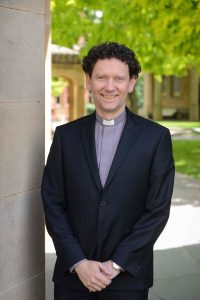 If you try and imagine for a moment the worst form of extreme capitalism, there are probably a few images that come to mind: landlords only accepting cash for rent payments and refusing to fix anything on the properties; large companies paying no attention to environmental regulations, and then poisoning the Danube River, as happened in Europe a few years ago; and, on the slightly more humorous side, TV shopping channels in the U.S., who will sell you any old rubbish, without regard for its quality, as long as they make a profit!
If you try and imagine for a moment the worst form of extreme capitalism, there are probably a few images that come to mind: landlords only accepting cash for rent payments and refusing to fix anything on the properties; large companies paying no attention to environmental regulations, and then poisoning the Danube River, as happened in Europe a few years ago; and, on the slightly more humorous side, TV shopping channels in the U.S., who will sell you any old rubbish, without regard for its quality, as long as they make a profit!
It’s interesting when you have personal experience of extreme, selfish capitalism which is out of control. If you’re on the wrong end of it, it’s terrible. One of the guys I grew up with experienced it directly as a university student. John was studying music, classical guitar, and had moved out of home into a dodgy run-down unit, which he was renting. The roof leaked a little bit when the wind blew from a certain direction, there was no heating, and any requests for basic maintenance were just ignored. Rent was cash only: the owner would turn up each fortnight, knock on the door, hold his hand out, and demand cash for the rent. John was in no doubt that if he was slow to pay the rent, there would be no compassion, no second chance, just immediate eviction.
Society, though, depends on us showing compassion for those who are less fortunate than us. If you look back at civilisations throughout history, the key indicator of how civilised societies have been is how they have treated their most vulnerable. That’s the question we must ask our society regularly, How do we treat our most vulnerable? How do we care for and look after people with disabilities? How do we care for and look after the poorest of our society: people who are homeless? How do we care for drug addicts and other social outcasts?
The Jewish culture and the culture of the Middle East in the time of Jesus was pretty good at caring for family members. If you were a member of a family and you fell on hard times, there was a safety net to catch you. You could rely on your family for food and accommodation, until you got back on your feet again. But God help you if you didn’t have a family: you were basically on your own. From an historical point of view, Jesus is the first person, that we have a record of, to say, you have a responsibility to care for the poor. He radically changed the way people thought about the poor.
In his time, not only was there no safety net, apart from your family, but it was also believed that if you were rich, it was because God had blessed you. Wealth was one sign that God had blessed you. So when Jesus says, “Blessed are who are poor, for yours is the kingdom of God” and then, “But woe to you who are rich, for you have received your consolation,” (see Luke 6, verses 20–26) it’s like the whole world has been turned upside down. Jesus’ listeners would have been blown away with the idea that the poor were blessed by God. He was the first person, that we have a record of, to teach this idea.
True blessing is not something that money will bring. You can be poor and still be very aware of God’s blessing. This is also hard for us to understand. We think that if only we had more and more money, that we would finally be content. But life doesn’t actually work that way. In many ways we experience this clash of cultures every day. We live in a society whose very foundations are built upon the accumulation of items, of things. For that reason Jesus’ words are just as challenging and relevant today as they were in the first century.
“But woe to you who are rich, for you have received your consolation.” Jesus is reminding his listeners that true happiness, true wealth, true meaning in life, can only come from a relationship with God. If we look after our spiritual life with God, then he will look after the rest of our lives. Obviously, we have to play our part – it’s no good expecting to eat without doing anything about it! But our focus needs to be on God. In amongst our society’s frenetic search for happiness, eternal youth, and riches galore, there is true blessing to be found in a life dedicated to God, in which those things become less important.
All life belongs to God. So, we give it to God, all of our life, which is what it means to bless God; and having given it all to God, in the sense of dedicating each part of our life to God, we can relax about the other stuff, the material things, because God will bless us in every part of our lives.
The Reverend Dr Theo McCall
School Chaplain
